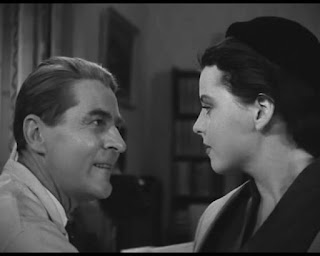Jacques Tati’s ‘PlayTime’ {1967} is deprived of a
plot. It does not have a story or a hero and the dialogues are hardly audible. Instead
it has a series of incidents. It has no central character. Hundreds of people seem
to be moving around as if aimlessly.
Mr. Hulot represented by Tati himself seems to have
been implanted in the city by accident.
The events take place over a 24-hour
period, a single day and evening, followed by a brief period the next morning.
The viewer doesn’t seem to be watching a film but observing
several characters throughout the movie. Humanity meanders around bewildered but seemed to have
hopes to see another day through a spotlessly clean futuristic city.
Tati envisaged a most imaginative and
insane idea: to build a city of his own design, in which he could shoot freely
and have absolute control.
So Tati built a colossal set outside Paris. It had an
airline terminal, city streets and footpaths, high rise buildings, offices, lampposts
and a traffic circle.
The buildings were made of glass and steel. There are
endless corridors, elevators, cubicles and modern gadgets.
 Perhaps it inspired Spielberg to build an enormous set
of an airline terminal in Tom Hank’s ‘The Terminal’.
Perhaps it inspired Spielberg to build an enormous set
of an airline terminal in Tom Hank’s ‘The Terminal’.
Tati shot exclusively in long shots without closeups. The
viewer is unable to focus on one part of the picture. The background and the
foreground are full of various actions and activities. The viewer notices one
action but invariable miss several others in a single shot.
Hulot becomes part of the scenery; he
disappears for long patches of screen time, seemingly lost in the bustle of the
modernized world. But then, this seems to be the purpose for the picture.
The audience observes a world full of
absurdity and meaninglessness in what we have built and keep building up.
With his long stemmed pipe, raincoat
and hat, his socks in full view and his pants often too short, the Character Hulot
moves about somewhat lost around the city, perplexed and baffled by the urbanization and modern gadgetry. Jacques Tati’s
Hulot as a character can be compared with Charles Chaplin’s Little Tramp.
PlayTime looks a lot like Charles
Chaplin’s Modern Times (1938). Chaplin poked fun at
conveyor belts, the concocted ridiculous feeding machines and the spread of
industries and corporate, degrading, demeaning, humiliating, disgracing and alienating
human beings. On the other hand, Tati’s PlayTime surveys architecture,
transportation, and modern social behavior from a distance, giving the audience
a feeling how modernisation and conveniences are futile.
During
that time Playtime became the most expensive movie in the history of French
Cinema.
There is a need to see the film several times to understand and
appreciate the actions.

































